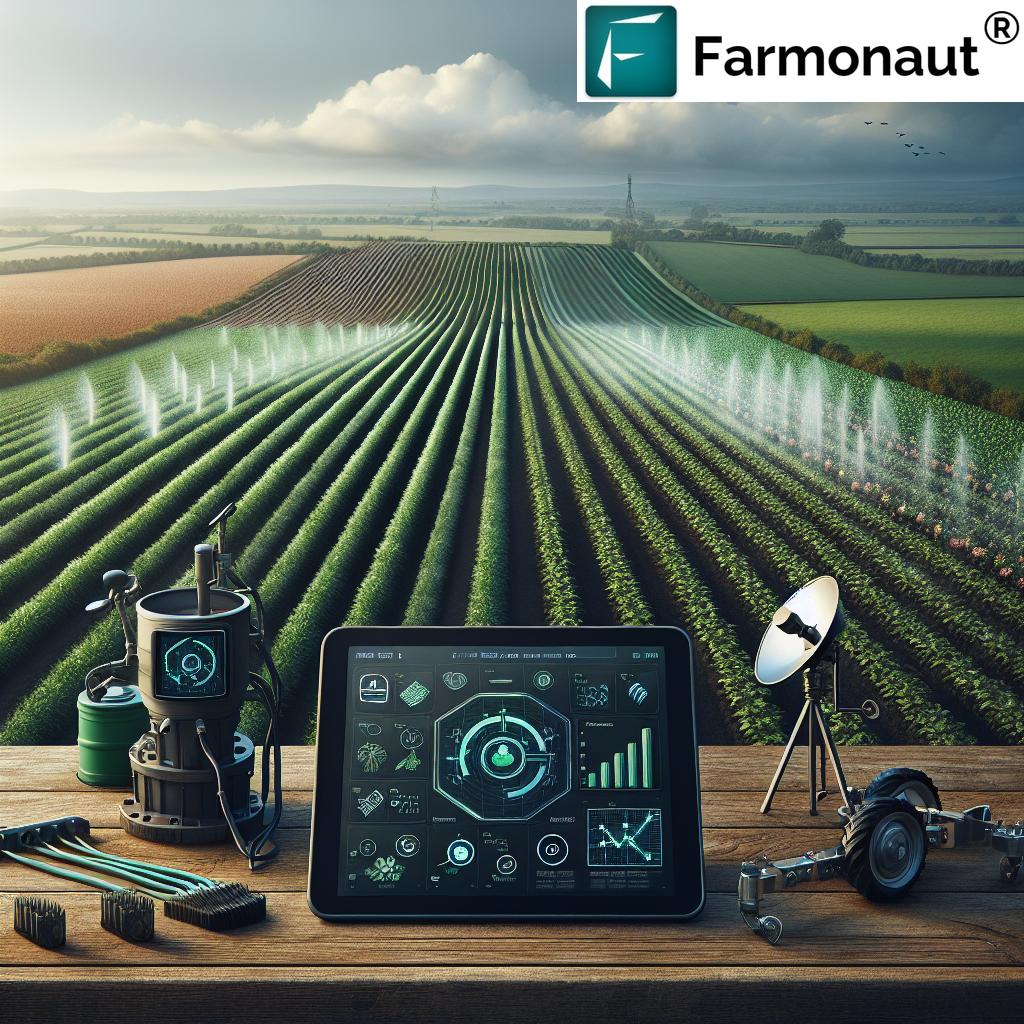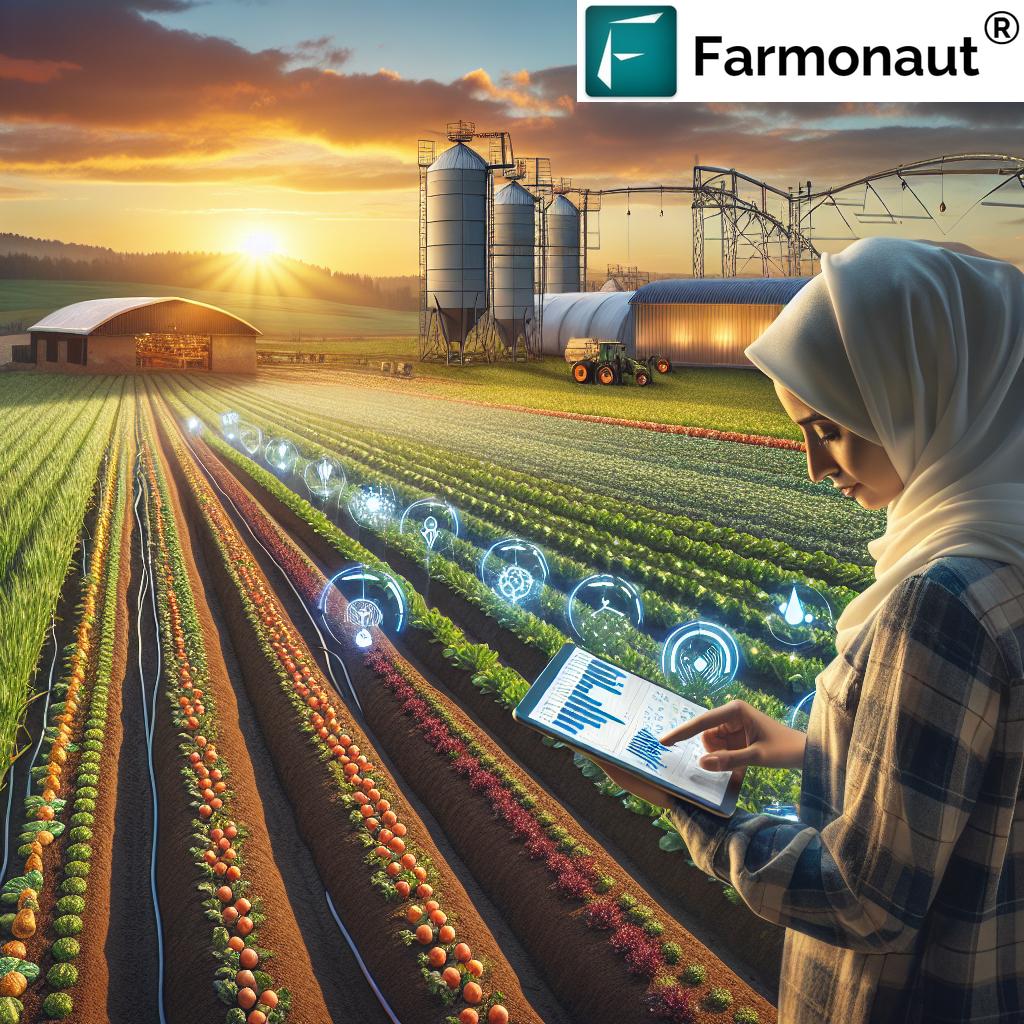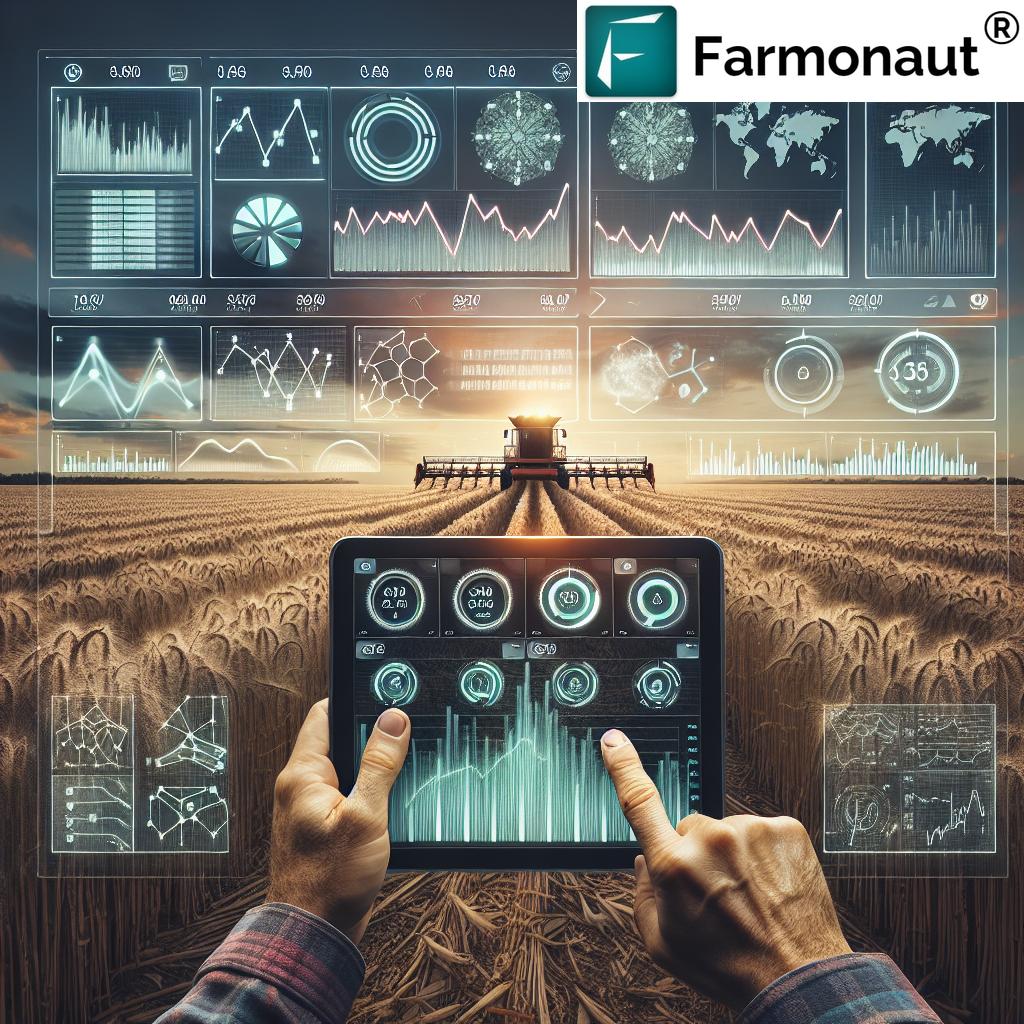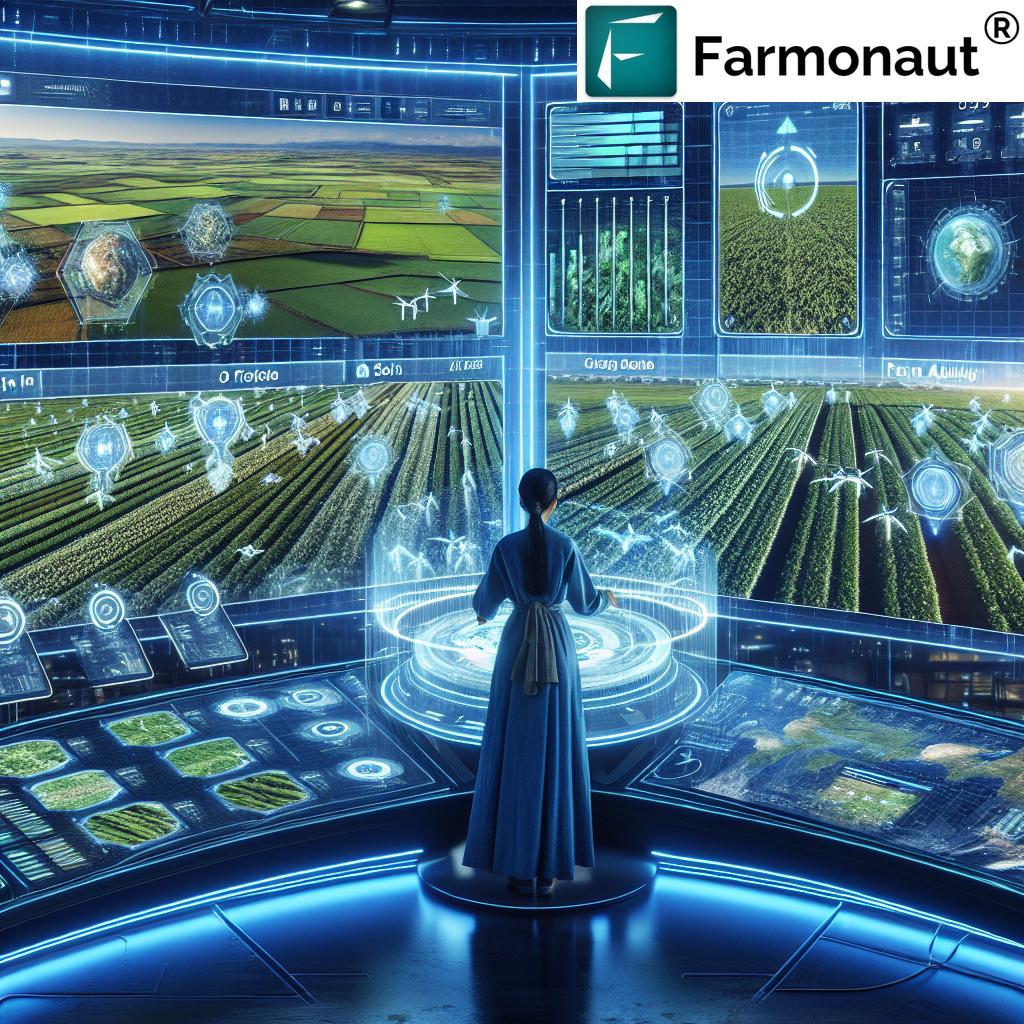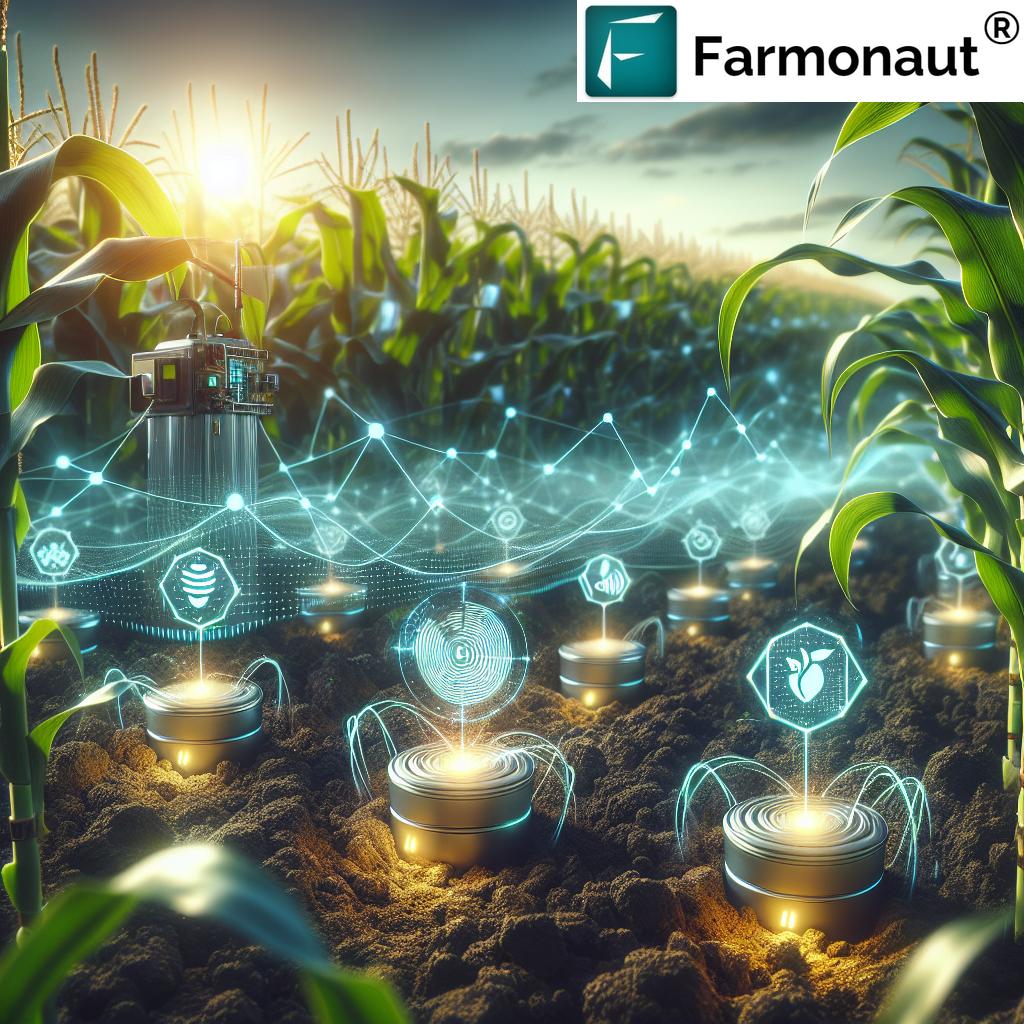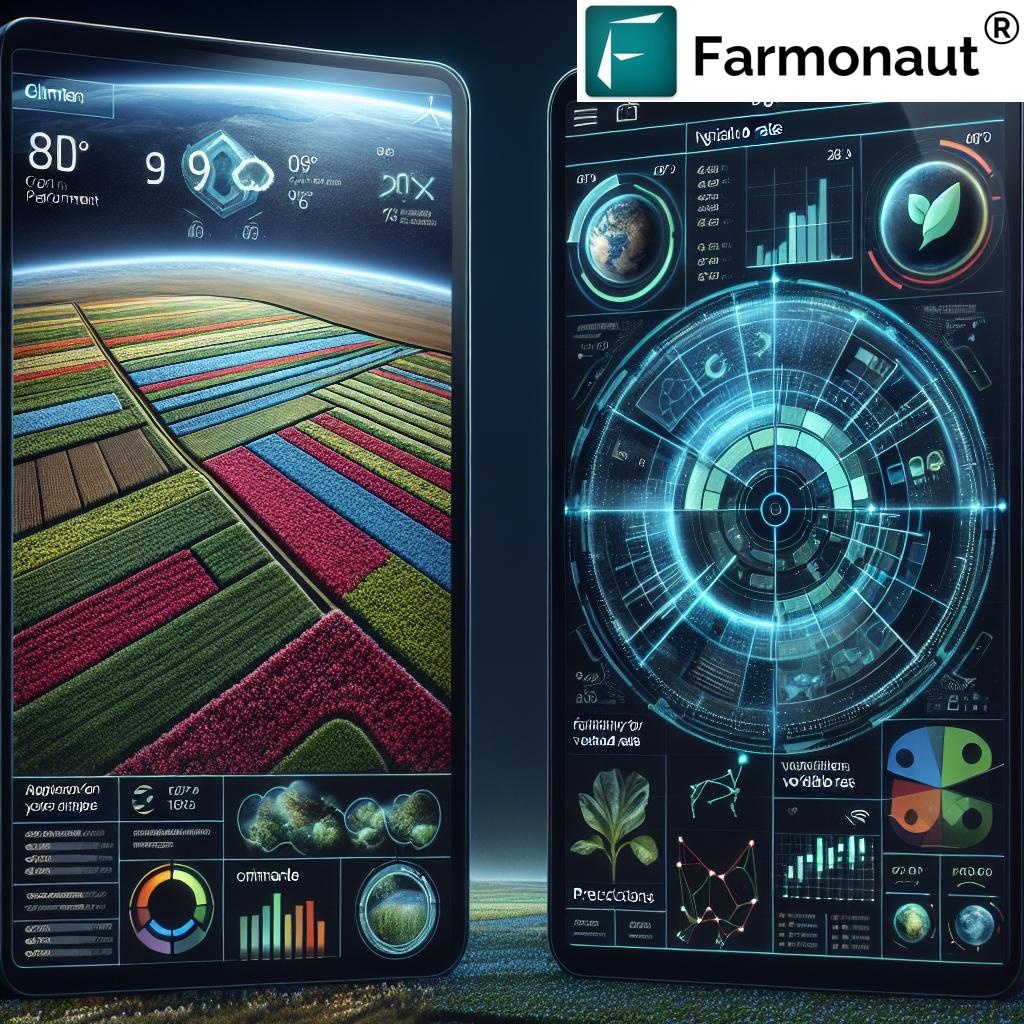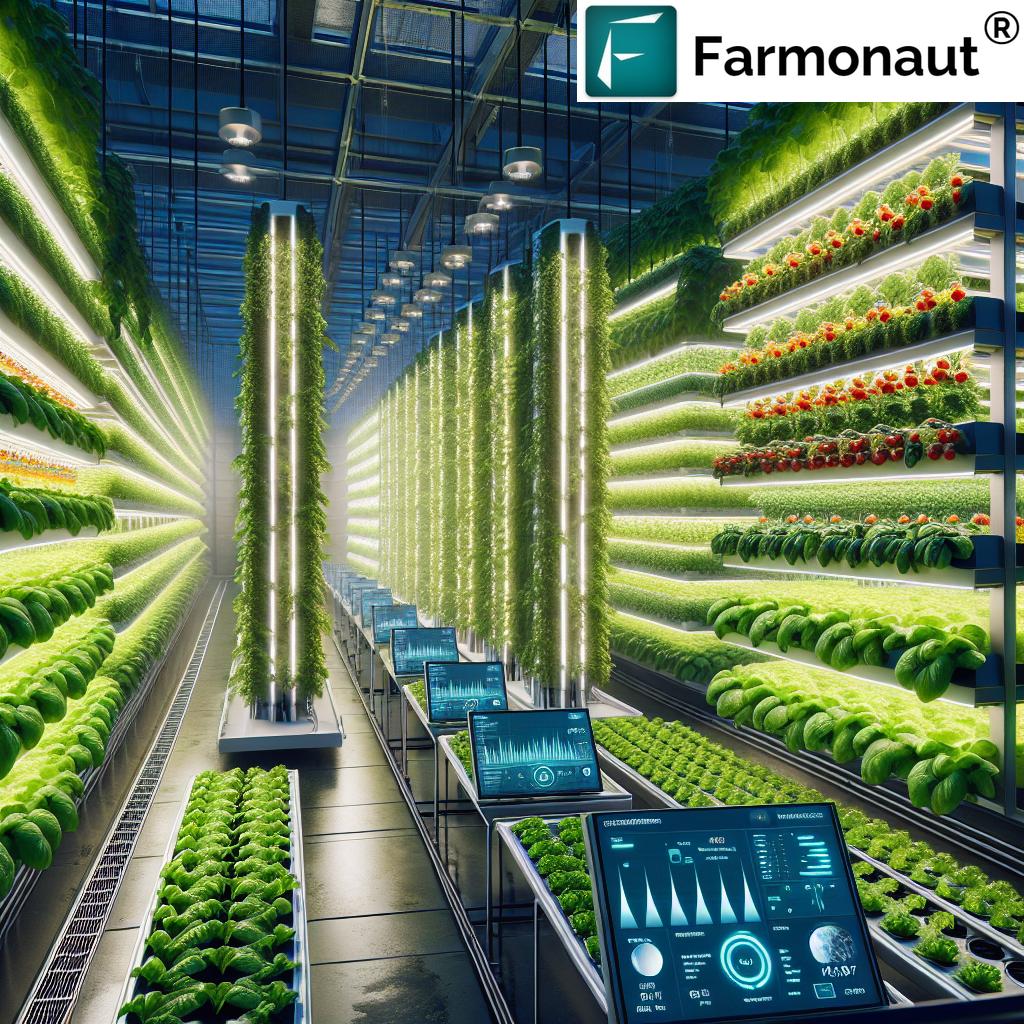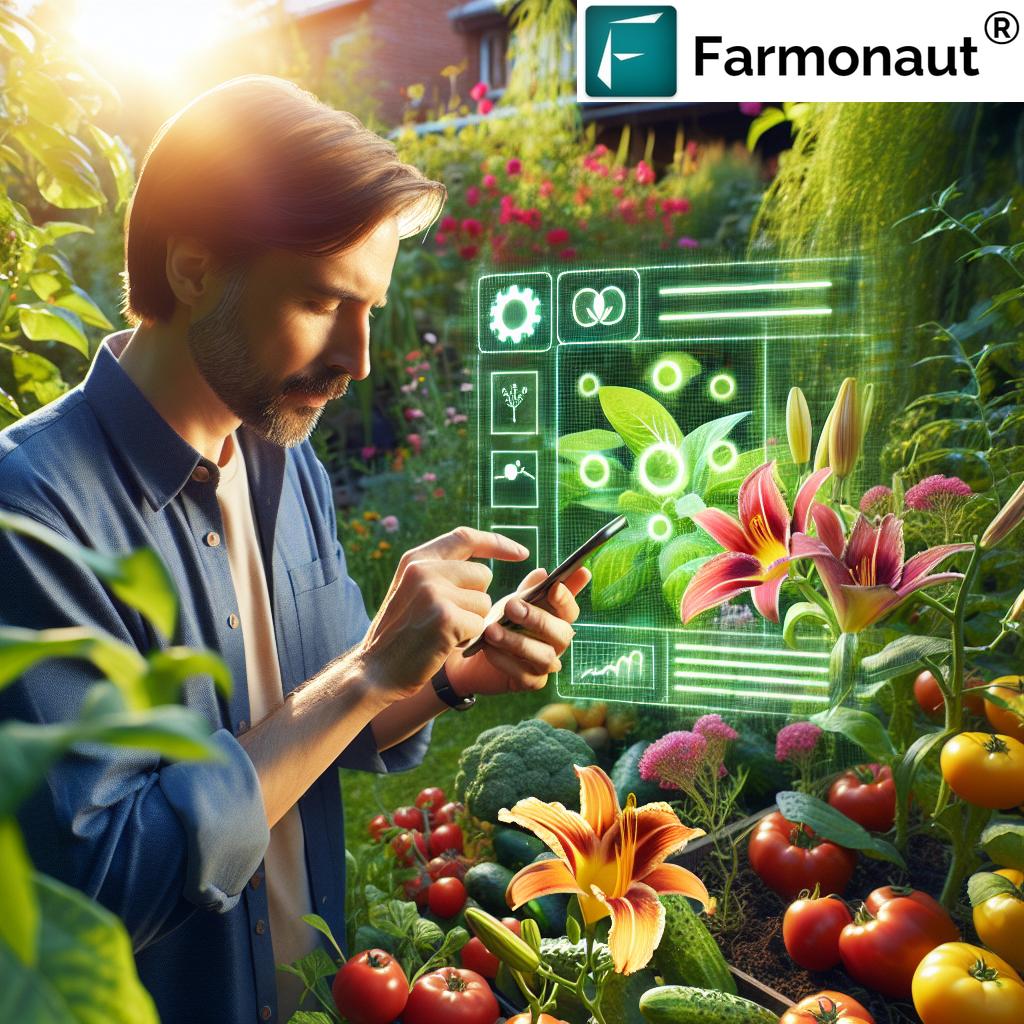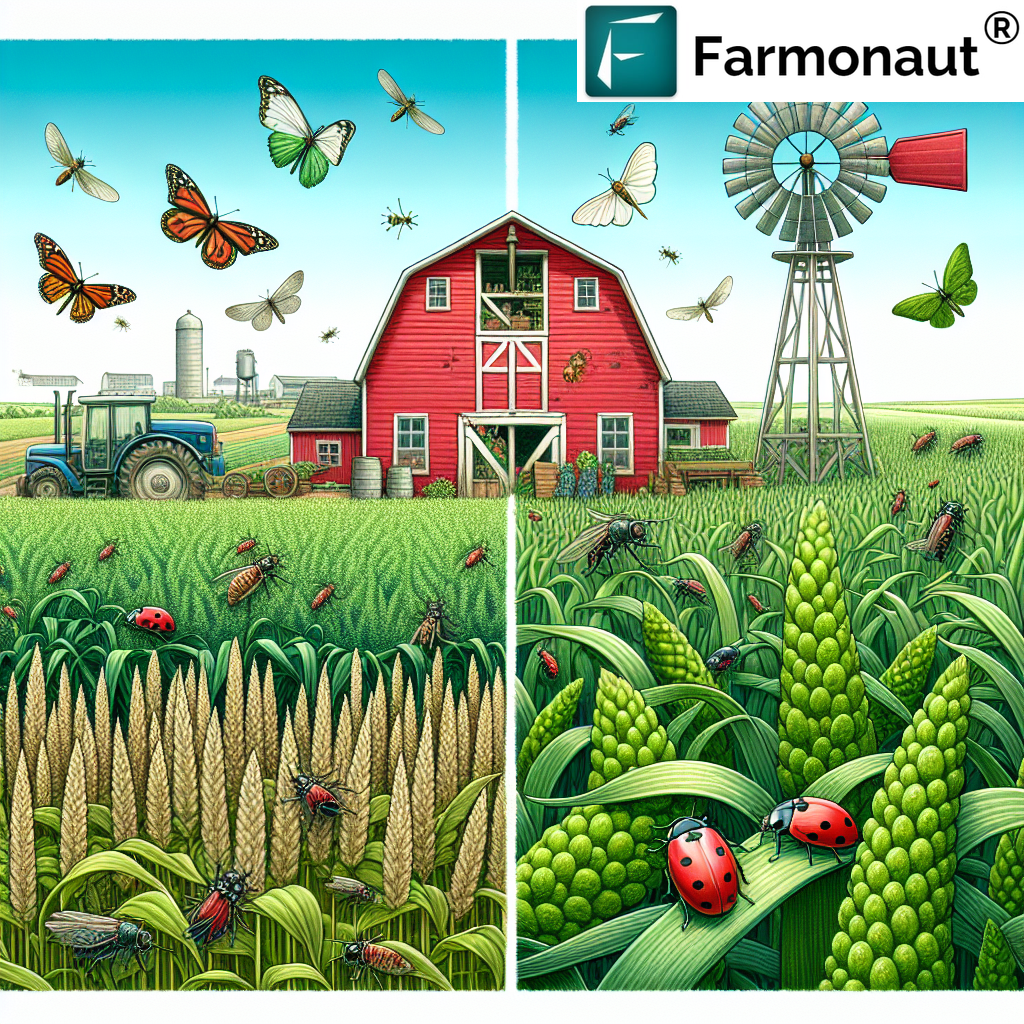Table of Contents
- Introduction: Revolutionizing Crop Production with Software
- The Role of Crop Production Software in Modern Agriculture
- 7 Secrets to Boosting Yields: Features & Benefits
- Farmonaut: Advanced Farm Management Solutions
- Comparison Table of Crop Production Software Features and Benefits
- Challenges and Considerations in Software Adoption
- The Future of Crop Production Software
- FAQ: Frequently Asked Questions
- Conclusion
“Farmers using crop production software report up to 30% higher yields compared to traditional methods.”
Crop Production Software: Boost Yields with These 7 Secrets
In today’s rapidly advancing agricultural landscape, crop production software has emerged as a transformative tool, shaping the way we approach farm management, resource utilization, and sustainable farming practices. As demand for food security grows and environmental concerns mount, leveraging innovative technologies and AI in agriculture is no longer a luxury—it’s a necessity. With the integration of precision agriculture technology, digital farm management platforms, and powerful agriculture data analytics, we are witnessing a new era of productivity and sustainability on farms worldwide.
This comprehensive post will delve into the pivotal role of crop production software, unravel the seven secrets that fuel higher yields, and provide actionable recommendations to harness these digital tools for better farm operations. We’ll showcase Farmonaut, a global leader in satellite-based farm management solutions, and compare leading platforms to help you select the perfect fit for your farming needs.
The Role of Crop Production Software in Modern Agriculture
The heart of modern agriculture beats with data-driven innovation. Crop production software serves as a centralized platform that consolidates information from multiple sources, including soil sensors, weather stations, and satellite imagery. By analyzing this plethora of data, the software offers actionable insights into crucial agricultural factors such as:
- Soil health (moisture, nutrient status, salinity)
- Irrigation needs and water management
- Pest and disease management
- Crop growth patterns and real-time monitoring
- Weather forecasts and risk mitigation
- Resource allocation and optimization
This holistic approach enables us to make informed decisions, ensuring that we not only enhance productivity and yields but also optimize resource use and promote sustainability in our farming operations.
7 Secrets to Boosting Yields: Features & Benefits of Crop Production Software
Let’s explore the seven key features and benefits that empower farmers to revolutionize their yields and achieve advanced, sustainable agriculture through crop production software.
-
Precision Agriculture: Field-specific Recommendations
Precision agriculture technology is a cornerstone of modern crop production. It uses real-time data from sensors, satellite imagery, and weather stations to tailor fertilization, irrigation, and input strategies to the unique needs of each field zone.
Example: Leading software such as CropX integrates soil sensors and agronomic models to monitor moisture, temperature, and salinity. This empowers farmers with precise, actionable recommendations, ensuring efficient delivery of water and nutrients.
By facilitating precise interventions and minimizing resource wastage, precision agriculture dramatically improves crop yields and sustainability.
- Enhanced crop productivity
- Reduced input costs
- Optimal use of water and fertilizers
- Lower environmental impact
- Customization for diverse soil, crop, and climate patterns
-
Pest and Disease Management: Early Detection and Response
Pest and disease management software enables early detection of risks that threaten crop health and yields. Modern digital tools use AI and machine learning to diagnose plant issues, assess risk, and recommend targeted solutions.
Example: Plantix, a mobile crop advisory app, leverages AI to diagnose diseases, nutrient deficiencies, and pest infestations through plant images. The software then connects farmers with local suppliers for timely interventions.
Utilizing these solutions, we can:
- Identify threats before visible symptoms appear
- Reduce crop loss through rapid, targeted response
- Minimize pesticide usage, lowering costs and environmental effects
- Enable pest trend monitoring for proactive management
-
Resource Optimization: Smart Use of Water, Fertilizer, and Inputs
Resource optimization is essential for sustainable farming practices. By leveraging AI-based analytics and predictive models, modern software platforms ensure inputs like water and fertilizers are used only when—and where—they matter most.
Example: SupPlant’s smart irrigation systems deploy sensors and predictive software to monitor plant and soil condition. These solutions have proven to reduce water usage by up to 70% in some regions, offering both economic and ecological benefits.
- Significantly reduced water waste and fertilizer runoff
- Precision resource delivery for optimal plant health
- Lower operational costs
- Support for regulatory compliance and environmental sustainability
-
Data-Driven Decision Making: Real-Time Insights and Automation
Farm management solutions provide real-time data on every aspect of crop production. AI in agriculture transforms this data into actionable insights, enabling smarter and quicker decisions that maximize efficiency.
Example: FarmWise combines robotics and AI-powered computer vision to identify and remove weeds. This reduces reliance on chemical inputs and supports sustainable land management.
- Minimized manual labor through automated monitoring
- Reduced error rates in field operations
- Evidence-based crop, fertilizer, and irrigation management
- Improved record keeping for audits, insurance, and compliance
-
Sustainability and Regenerative Practices: AI for Climate-Smart Farming
Technology is at the forefront of driving sustainable farming practices. Regenerative agriculture tools powered by machine learning and remote sensing provide deep insights on carbon sequestering and soil health restoration processes.
Example: Companies such as Perennial and Downforce Technologies use advanced data to monitor and predict soil organic carbon levels. This makes it easier for farmers to track progress towards sustainability goals, meet environmental regulations, and maximize ecosystem benefits.
- Tracking and improving soil carbon sequestration
- Facilitating climate-resilient farm planning
- Reducing carbon footprint through optimized resource use
- Enabling transparent reporting for supply chain and consumers
-
Integration with Digital Platforms & Mobile Apps
Today’s digital farm management platforms offer seamless integration via mobile apps, web portals, and APIs, enabling us to make decisions on the field, in the office, or remotely.
- Instant access to farm data, anywhere and anytime
- Integration with existing farm equipment and ERP systems
- Simple user interfaces for all tech skill levels
- Collaborative features for team-based operations
-
Blockchain-Based Traceability: Transparency from Seed to Market
Ensuring food safety, quality, and trust requires robust tracking along the value chain. Blockchain-based traceability solutions enable secure, transparent documentation of every step from planting to harvest and delivery.
- Verify product origin and agricultural practices
- Guard against fraud and tampering in supply chains
- Meet increasing consumer demands for transparency
- Simplified compliance with export and retail requirements
Discover how Farmonaut’s traceability platform enhances supply chain integrity for agricultural products.
Learn more about Farmonaut Product Traceability Solutions
“AI-driven agriculture solutions can reduce fertilizer use by 20%, optimizing both costs and environmental impact.”
Farmonaut: Pioneering Satellite-Based Farm Management Solutions
Among the innovators driving this digital transformation, Farmonaut stands out. Our mission is clear: make precision agriculture affordable and accessible to farmers worldwide. We blend satellite imagery, artificial intelligence, blockchain, and machine learning to address key agricultural challenges, offering a comprehensive solution suite through mobile and web applications as well as API access.
Key Technologies Empowering Farmonaut’s Users
-
Satellite-Based Crop Health Monitoring:
Multispectral satellite images detect crop health anomalies and soil moisture variations, arming us with data for timely irrigation, fertilizer adjustments, and pest management. -
Jeevn AI Advisory System:
This AI-driven tool delivers real-time, personalized advice—ranging from weather forecasts to crop-specific management recommendations. -
Blockchain Traceability:
Secures every step of the agricultural supply chain via tamper-proof records, ensuring both safety and transparency for consumers and processors. -
Fleet and Resource Management:
Optimize agribusiness logistics and operations, reducing costs and improving machinery efficiency. -
Carbon Footprinting:
Track real-time emissions and environmental impacts, enabling farmers and enterprises to advance their sustainability goals and report on compliance.
Farmonaut’s modular offering means that whether you are a small farmer, a plantation manager, or a large agribusiness, you have access to cost-effective precision agriculture and end-to-end farm management solutions.
- Individual Farmers: Access affordable, real-time monitoring, weather prediction, and actionable insights for better crop health and productivity.
-
Agribusinesses: Centralized oversight for large-scale farm management, logistics, and data-driven production planning.
Discover Farmonaut’s Agro Admin App for Large-Scale Farm Management
- Governments and NGOs: Monitor yield and area on a macro scale, optimize policies for subsidies, and roll out region-wide sustainable practices.
-
Financiers: Satellite-based verification tools for crop loans and insurance minimize risk and streamline eligibility checks.
Learn more about Farmonaut Crop Loan and Insurance Solutions
- Corporate Clients: Blockchain-powered tracking for cotton, food, and other commodities to ensure transparent, ethical sourcing and enhanced consumer trust.
Explore premium carbon monitoring and footprinting solutions as you align your farm or agribusiness with climate-positive goals:
Check out Farmonaut’s Carbon Footprinting Solutions
Farmonaut: Flexible Access and Integration
- Mobile, Web, and API: Use across Android, iOS, browsers, or API for seamless integration with enterprise or third-party platforms.
-
Subscription Model: Choose a suitable package for your farm size, field area, and required data update frequency.
Check out Farmonaut’s subscription plans:
-
API Access for Developers: Integrate satellite, weather, and crop data into your own digital farm management platform using the Farmonaut API:
Farmonaut Satellite API |
API Developer Documentation
Ready to experience the convenience and power of a digital, data-driven farm management platform? Start with Farmonaut’s App!
Comparison Table of Crop Production Software Features and Benefits
Selecting the right crop production software is crucial for optimizing returns and sustainability on your farm. Below is a detailed comparison to help you understand leading solutions based on their precision analytics, remote sensing, AI integration, and sustainability impact. This table highlights how each option can help you enhance productivity, reduce resource use, and align with modern farm management goals.
| Software Name | Key Features | Estimated Productivity Boost (%) | Resource Optimization Level | Ease of Use (★) | Sustainability Impact (CO₂ Reduction %) |
|---|---|---|---|---|---|
| Farmonaut |
Satellite-based health monitoring AI advisory Blockchain traceability Carbon footprinting Resource/fleet management |
20–30% | Very High | ★★★★★ | Up to 35% |
| CropX |
Soil sensors Precision analytics Field-specific agronomic models |
15–25% | High | ★★★★☆ | Up to 25% |
| Plantix |
AI-based diagnostic (image analysis) Pest/disease identification Mobile advisory app |
8–15% | Medium | ★★★★☆ | 10–18% |
| SupPlant |
Smart irrigation Plant & soil sensors Predictive software |
18–27% | Very High | ★★★★☆ | 20–30% |
| FarmWise |
Robotic weeding AI/ML crop analytics Chemical reduction |
10–17% | High | ★★★☆☆ | 15–23% |
Challenges and Considerations in Crop Production Software Adoption
While crop production software offers immense promise, successful deployment requires navigating several challenges:
- Data Privacy and Security: Protecting sensitive farm data from unauthorized access is critical.
- Integration with Existing Systems: Seamless integration with farm equipment and legacy platforms ensures usability and continuity.
- Cost and Accessibility: Upfront investments or subscription fees may pose a barrier for smallholders.
- Data Overload: Large volumes of complex data can overwhelm users without adequate training and support.
Overcoming these barriers means choosing flexible, mobile-friendly software with responsive customer support and clear documentation.
Discover Farmonaut’s extensive learning resources and developer API documentation to ensure seamless integration and onboarding:
Farmonaut API Developer Docs
The Future of Crop Production Software: AI, Analytics, and Sustainability
The future of crop production software is brimming with opportunity. Advancements in AI, machine learning, and IoT technologies will:
- Deliver ever-more personalized, field-specific recommendations
- Automate a broader range of farm operations
- Enhance interoperability with diverse agricultural equipment and management systems
- Become more accessible—reducing cost and skill barriers even further
- Drive sector-wide progress toward climate-smart, regenerative agriculture
Farmonaut’s roadmap continues to push these boundaries by prioritizing affordability, real-time global coverage, and robust support for both smallholder and enterprise clients.
FAQ: Frequently Asked Questions on Crop Production Software
How does crop production software help increase yields?
By leveraging real-time data from satellites, sensors, and weather stations, crop production software delivers actionable insights on irrigation, fertilization, and pest management—ensuring optimal conditions for crop growth and higher yields.
Is crop production software suitable for small farms?
Yes, modern solutions like Farmonaut are designed to be affordable and scalable, offering tailored packages for smallholders as well as large enterprise farms.
What makes Farmonaut different from other software?
Farmonaut uses satellite-based monitoring, AI-driven advice, and blockchain traceability—combining multiple leading technologies into a cost-effective, user-friendly, and accessible platform.
Can crop production software help with sustainability and carbon reduction?
Absolutely. These solutions enable precision resource use, track carbon footprint, and support regenerative agriculture practices—helping you meet sustainability and environmental compliance goals.
How can I get started with digital farm management?
Start by evaluating your current farm challenges, choose a platform that fits your needs (such as Farmonaut), and consider onboarding through the web or mobile app. Utilize support resources for training and setup.
Conclusion: Powering the Future of Farming with Crop Production Software
The world of agriculture is changing rapidly, and crop production software lies at the epicenter of this transformation. By integrating advanced data analytics, precision agriculture technology, and AI-driven farm management solutions, we can:
- Boost yields while lowering costs and resource use
- Empower informed decisions with real-time, actionable data
- Advance sustainability and carbon reduction goals
- Enhance transparency, trust, and traceability across the food supply chain
- Make sustainable farming practices the new standard
Embrace the digital future. Choose Farmonaut or a leading solution that puts data, innovation, and sustainability at the heart of your operations.
Ready to experience the future of agriculture? Enhance your productivity, optimize resource utilization, and promote sustainable agriculture with today’s most advanced digital farm management platform.


